Keresés: %s
Keresés: %s
Hungary supports the acceleration of permit-granting process of renewable energy
Hungary supports the acceleration of the permit-granting process of renewable energy, but simultaneously opposes the extension of the measures related to the gas price cap and the joint gas purchase, the State Secretary for Energy and Climate Policy of the Ministry of Energy stated in Brussels on Tuesday.
Attila Steiner told MTI during a break in the meeting of EU energy ministers that Hungary supports the extension of the measure allowing for the accelerated approval of wind and solar power projects, in order to allow for the quickest possible allocation of funds and the implementation of the projects.
In the context of the European Commission's proposal to extend the €180 per megawatt-hour gas cap introduced in February, in view of the geopolitical situation and fearing a winter increase in gas prices, Attila Steiner said that Hungary does not support the extension of the measure. Hungary considers this a kind of sanction measure, the application of which could trigger a very bad reaction from the Russian side. It could even lead to retaliatory measures, he warned.
The State Secretary underlined that Hungary does not support the extension of the transitional measure on the joint EU gas purchase, which expires at the end of the year. The measures make it compulsory to provide relevant information to disseminate a notification relating to new gas contracts, and to permit the European Commission a say in the process. Hungary does not want this, he stressed.
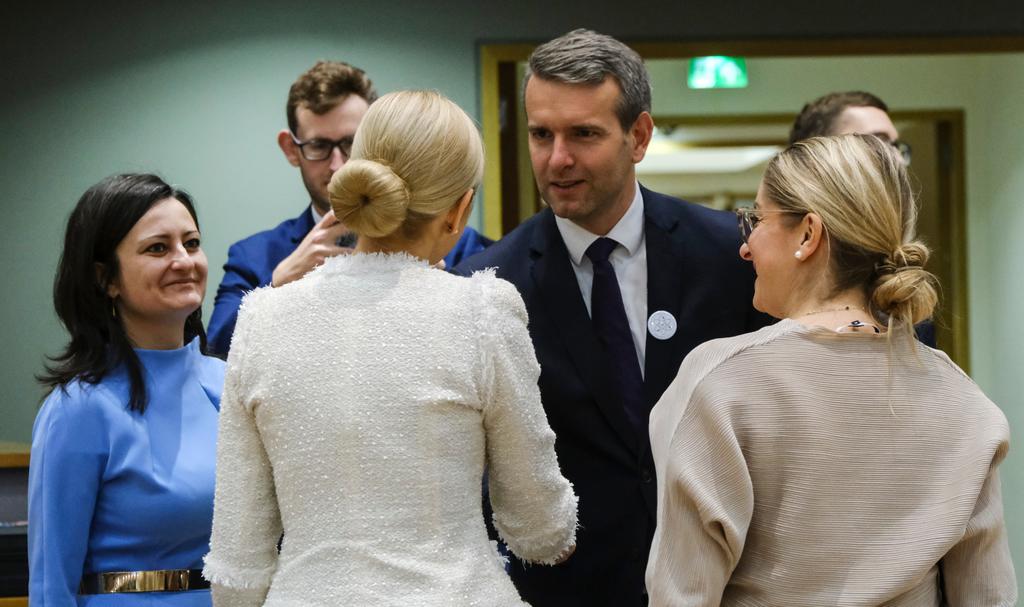
The Hungarian government also opposes the EU's so-called gas solidarity measure. This means that if a neighbouring Member State needs gas urgently, gas must be sold immediately at a spot market price, regardless of the price at which the country providing the aid has stored it previously.
"We believe it would be fair to bail out a neighbouring Member State at the price at which the gas was purchased," said Attila Steiner.
The State Secretary also reported that the Hungarian measure on the reduction of utility bills is "constantly under attack from different directions", and that they want to see it withdrawn. Under the proposed legislation, the only way to maintain the cuts would be for the European Commission to declare an EU state of emergency, he explained. Hungary said this violated Member States' rights, and such a measure should be be taken under national competence.
"These cuts are working well, we have the resources. We are very determined to maintain the measure," he said.
Finally, Attila Steiner said that Hungary is well prepared for the winter, with gas storage capacity at around 90 percent. In terms of consumption, Hungary has stored much more gas than the EU average, he said. This means that Hungary's gas supply security for the winter season is guaranteed, the Energy Ministry's State Secretary for Energy and Climate Policy added.
Source: MTI - Hungarian News Agency
Hungary is expected to be at the forefront in the EU economic growth ranking in 2024
Based on the European Commission's latest evaluation, Hungary may be at the forefront of the EU economic growth ranking this year. A growth of 2.4 percent is predicted for the Hungarian economy, which is significantly higher than the EU average of 1.3 percent, Minister of Finance Mihály Varga said in a statement to MTI in Brussels on Tuesday.
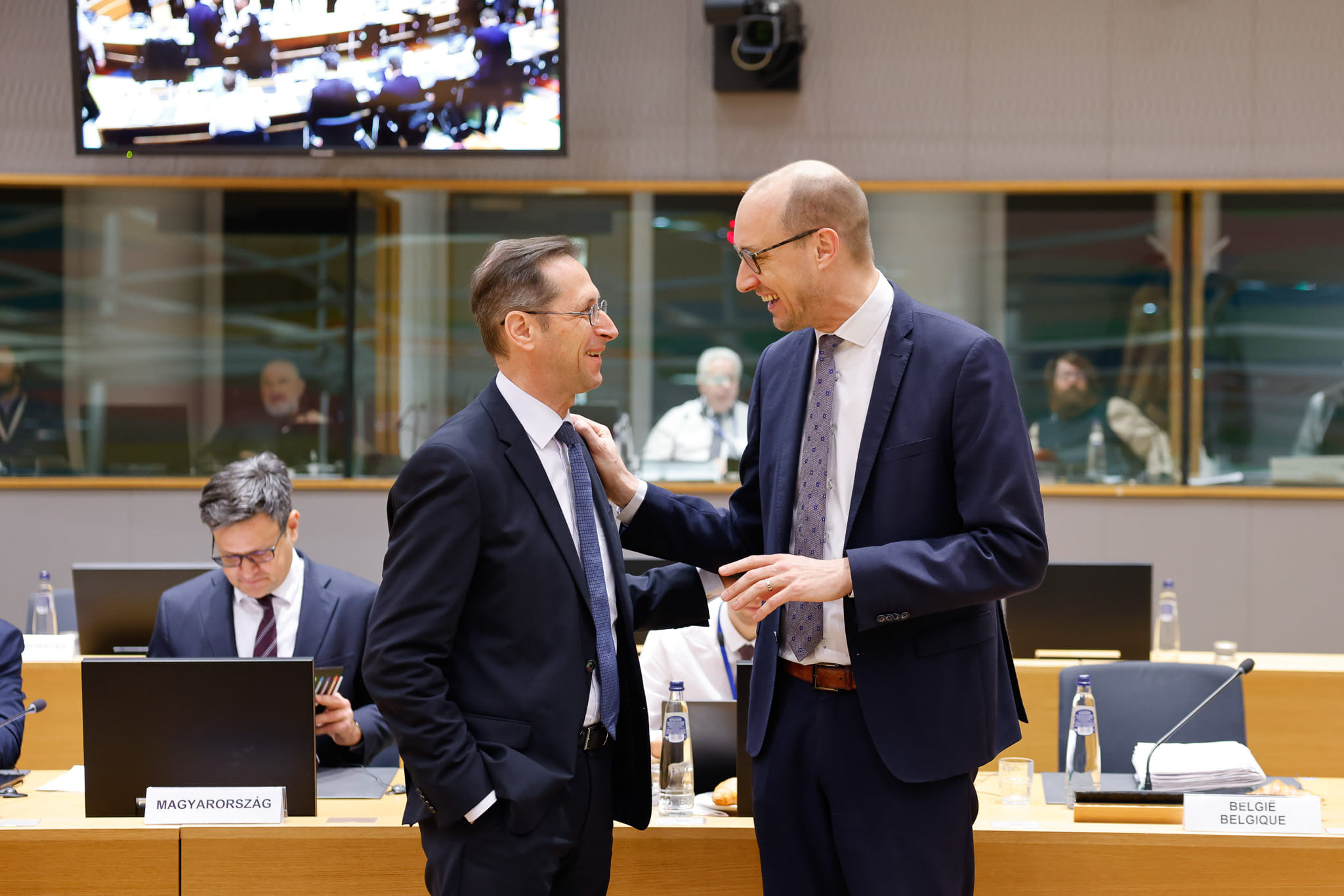
Mihály Varga attended a meeting of EU finance and economy ministers in the Belgian capital. Outlining the Council's agenda, he said that Member States are emphasizing competitiveness and striving to put Europe on a growth path.
According to the Minister of Finance, it is good news that the latest economic forecast of the European Commission predicted a 2.4 percent growth of the Hungarian economy by 2024. Still, he added that the Hungarian government expects a higher growth, 3.6 percent. "We are very confident that all of this will go hand in hand with improving competitiveness," he emphasized.
Regarding the financing of 50 billion euros for Ukraine over four years, the Minister of Finance said the Hungarian position is that the instrument should be evaluated annually, in the framework of which the EU Commission assesses the demand for funds and their utilization, leading to decisions on the following year's disbursement.
"We ended the meeting with the hope that at the EU summit on February 1, the Hungarian proposals would also be considered when a final decision is made on the instrument. We must strive for the European Union to develop a solution acceptable to all Member States, just like it did so far." - said Mihály Varga.
Source: MTI-Hungarian News Agency
Being seen to comply is the main driving force behind the EU’s latest sanctions proposal
The main driving force behind the proposal for new sanctions against Russia appears to be the compliance, with several EU Member States wanting to be seen to act, Foreign and Trade Minister Péter Szijjártó said in Brussels on Monday.
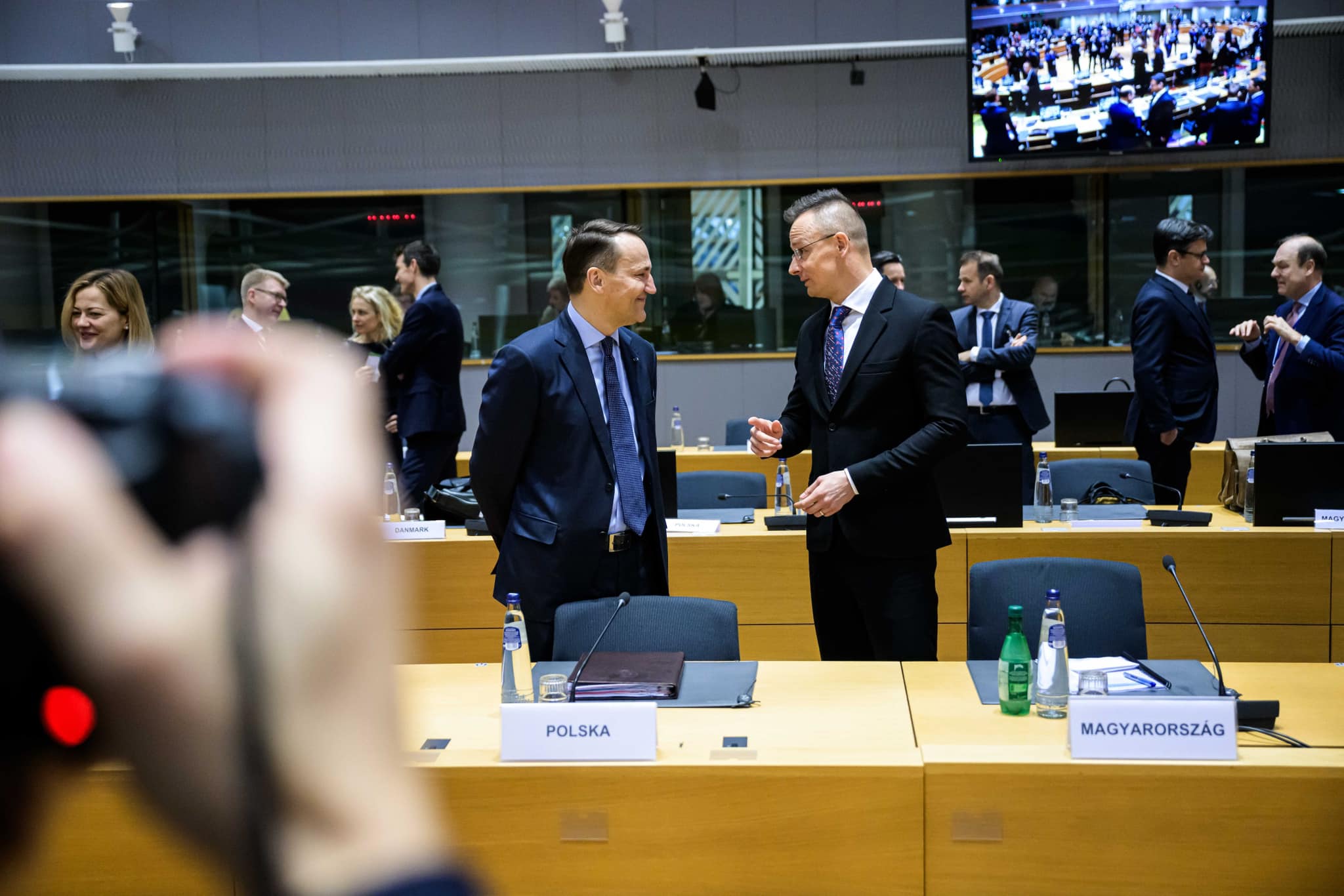
According to a statement by the Ministry of Foreign Affairs and Trade, the minister said in a press conference after the EU Foreign Affairs Council meeting that the main driver behind the new sanctions package proposed by some against Russia is the need to comply.
"So several EU Member States want to give the impression of action, and I think that is the number one guiding principle," he said.
He underlined that on January 29th, he would meet his Ukrainian counterpart Dmitry Kuleba and the head of the Kyiv Presidential Office, Andriy Yermak, in Uzhhorod (Ungvár, UA) and will try to work through all the issues that are causing difficulties in bilateral relations today.
In his words, this is also linked to the fact that Hungary still needs to contribute to the payment of another 500 million euros from the European Peace Facility for arms supplies to Ukraine.
"Here we said that we are willing to consider releasing this aid if we get guarantees that Ukraine will not discriminate negatively against more Hungarian companies or cause them problems by putting them on the list of international sponsors of the war without any merit or reason," he recalled.
"We will see if we can move forward next Monday, January 29th," he added.
The minister then reiterated Hungary's position on the start of negotiations on Ukraine's accession to the EU, saying that the European Council in December had taken an "incorrect, wrong and damaging decision," for which Hungary does not wish to accept any responsibility.
"And this will continue to be our position. Of course, we understand that they are trying to discredit this position; they are putting pressure on us, sometimes by saying that the position is not tough enough, sometimes by other means, but we are not affected by this. We have sworn to represent the national interest, and the pressure they put on us in this case sofar has not impacted the Hungarian position whatsoever," he stated.
In connection with next week's extraordinary EU Summit, he confirmed that the Hungarian government would not be a partner in "mixing things that are not related to each other." "That's why it's not worth contacting us in a bazaar-style with different options; things that have nothing to do with each other, shall not be mixed" he said.
Szijjártó also pointed out that his Israeli counterpart took part in the discussion of the relevant agenda item of the meeting too, during which several of them expressed critical views on Israel, which were very far from the Hungarian position.
He emphasized that there was no heated debate; instead, the Israeli foreign minister highlighted the need for cooperation, firmly standing by his country's national position.
Source: MTI-Hungarian News Agency
Hungary refuses to bear any financial burdens of Ukraine weapons deliveries
Hungary will remain uninvolved in the delivery of weapons to Ukraine, but will not block other EU Member States from doing so, adding that the Hungarian government refuses to bear any of the financial burden of this, Foreign Minister Péter Szijjártó said on Monday in Brussels.
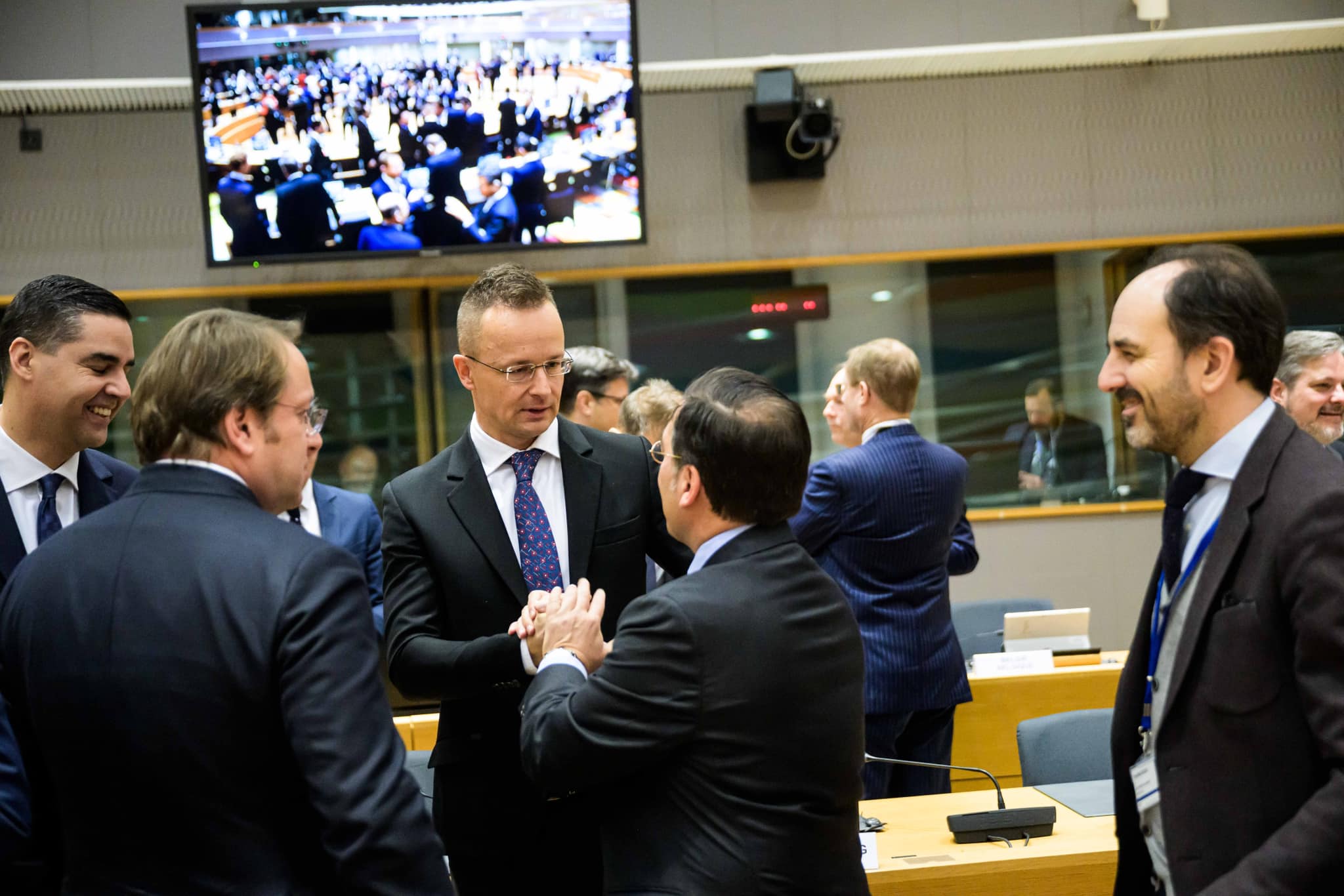
According to a statement of the Ministry of Foreign Affairs and Trade, the Minister said at a press conference following the EU Foreign Affairs Council meeting that the situation in Ukraine was a key item on the agenda, and the discussions had made it clear that the spirit this year remained the same old “war psychosis” of Brussels.
He complained that Member States still refuse to abandon their failed strategy despite failures have been proven over the past few weeks.
"This strategy has failed; there is no solution to this war on the battlefield. The more people die, and the greater the level of destruction will be, the longer this war lasts," he emphasized.
He called the new proposal of the European External Action Service disappointing to allocate a 500 million euro budget for arms delivery to Ukraine within the frames of the European Peace Facility this year, which would be later extended on a yearly basis.
Though he said it was a notch softer than the previous proposal, the approach remained the same, and it would reaffirm the community's long-term commitment to the war.
He also said that Hungary should contribute with 23 billion forints to this project according to this proposal.
“Giving a new momentum to weapon deliveries is completely unacceptable for Hungary. Hungary has never delivered weapons, and has no intention to do so in the future. We are not willing to participate in any kind of decisions that contributes to the increase of arms shipments," he underlined.
Szijjártó added at the same time, that the government can't and won't prevent other Member States from supplying weapons, noting that they are accountable to their citizens.
Let's say why millions, tens of millions, hundreds of millions of euros were not provided to support different social groups, for example, farmers, but for arms supplies. It will be everyone's decision, and each government must be accountable to its electorate," he said.
"Today, I took the position that Hungary will not participate in arms transfers, we will not prevent others from doing so, but at the same time, we are not willing to bear any financial burden because of the arms transfers of others," he said.
"I asked them to consider that, try to cook with that, and prepare a decision accordingly," he continued.
"We will definitely not spend another 23 billion forints of Hungarian taxpayers' money in a single year to send weapons to Ukraine, which will prolong the war, extends the suffering, and brings more deaths and more destruction ", he concluded.
Then he argued that instead of all these proposals, the EU should open communication channels, achieve a ceasefire, and start peace talks between the parties.
"According to our point of view, this is the only acceptable position on a moral basis, as it is the way to save human lives, including Hungarian lives," he said.
Finally, the Minister also reported that there were discussions about a thirteenth package of sanctions against Russia. Even though, the previous restrictions mainly harmed Europe, and they did not bring us any closer to a settlement.
"Of course, if one brings this up, as I regularly bring it up, one will be immediately be accused of spreading Russian propaganda," he declared.
He also warned his colleagues against extending sanctions to the nuclear industry, as Hungary will not support any such measure.
In this context, he pointed to the controversy of Russia becoming the number one supplier of uranium to the United States last year, with reports of import more than a billion dollars.
Source: MTI-Hungarian News Agency
The success of Israel's anti-terrorist operations is a global interest
The success of Israel's anti-terrorist operations is a global interest, as it would help to ensure that a similar terrorist attack never happened anywhere ever again, Minister of Foreign Affairs and Trade Péter Szijjártó announced on Monday in Brussels.
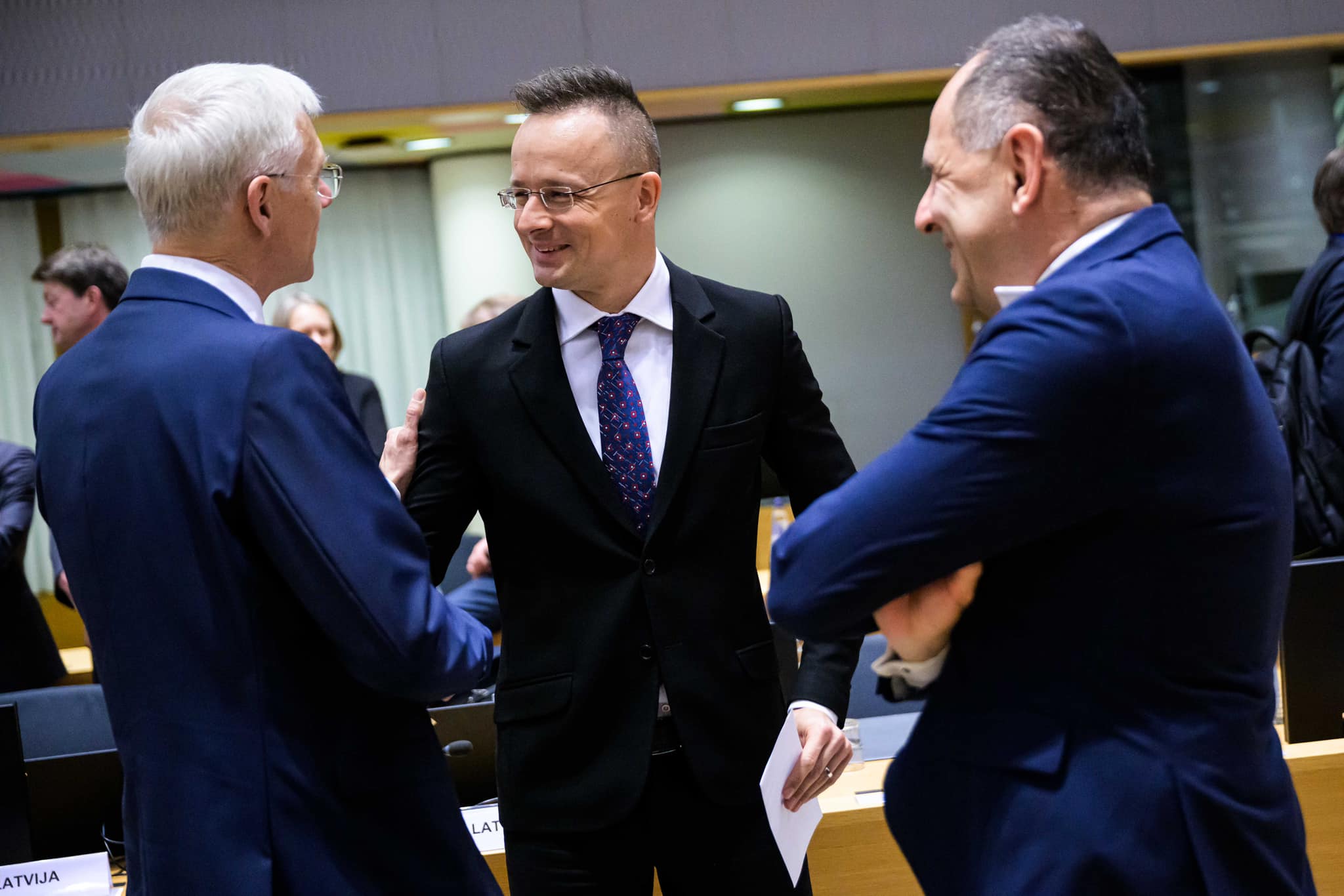
According to a statement by the Ministry of Foreign Affairs and Trade, the Minister of Foreign Affairs emphasized at a press conference following the EU Foreign Affairs Council meeting that Hungary's position is crystal clear: we must not forget what triggered the conflict of the Middle East.
"A country woke up one morning, more than hundred days ago, of being fired by thousands of rockets, and hundreds of people being abducted, hundreds of people being killed in a beastly way," he recalled.
He underlined that the success of Israel's counter-terrorism operations is a global interest, as it can help the world to ensure that such terrorist attacks are never repeated anywhere, ever again.
"Therefore, we find Israel’s objective to destroy Hamas not only understandable, but also legitimate, and of a global interest (...)Those who use people, especially women and children, as human shields after committing a terrorist attack against a country, should feel shame", he stressed.
"It is a global interest to return to the Abraham Accords as soon as possible, namely to the normalization of relations between Israel and the Arab world," he added.
At the Council meeting, Szijjártó confirmed the Hungarian position on two issues. "First and foremost, we call for the immediate and unconditional release of the hostages who are still in captivity," he said.
In this context, he added that one Hungarian citizen was still being held captive, and was hopefully alive.
He also underlined that the government remains in constant contact with Qatar and another important mediating country, adding that he would not name the country due to the sensitivity of hostage negotiations."I also made it clear that Hungary considers the Hague proceedings against Israel to be nonsense. It is nonsense to accuse of genocide a country that has been the victim of a bestiary terrorist attack," he said.
Finally, the Minister said that Israel had asked Hungary to allow the Jewish national football teams to play some of their official matches in the country, as they did last year.
He informed, that Hungary would host Israel's European Championship play-off match against Iceland, the Israeli under-21 team's match against Poland, and the next official match of the women's national team. Also, the Hungarian government supports Maccabi Haifa to play their next European Conference League match in Hungary.
"Everyone is safe in Hungary, and I think it has been fully proven recently. So those are obviously lying, who still say that anti-Semitism is rising in Hungary." he said.
Source: MTI-Hungarian News Agency
Great hungarian success at the special summit of the European Union
Great hungarian success at the previous day's special summit of the European Union, the government managed to implement each of its objectives - Minister of Foreign Affairs and Trade Péter Szijjártó announced on Friday in Brussels.

According to the Ministry's statement, the Minister responding to questions of journalists at the press conference organized after the EU-India-Pacific ministerial forum, underlined that they were able to achieve that "funds due to Hungary according to European treaties and withheld contrary to them cannot go in Ukraine".
By being a part of the joint decision, we managed to prevent the funds frozen and not handed over to Hungary suddenly ending up in Ukraine. On the other hand, by being a part of the joint decision, we also managed to create a control mechanism, which guarantees that the money is spent based on the agreement, and the European Commission reports on this to the Council on a yearly basis," -he said.
"So, a great Hungarian success was achieved, we were able to achieve both of our objectives, both Hungarian aspects had to be taken into consideration by the European Council during such an important decision," he stated.
He emphasized that the voted funds will not be used for weapon deliveries, but for the functioning of the Ukrainian state, for the people. "Hungary maintains its pro-peace stance, continues not to deliver weapons, and does not participate in any arms delivery operations," he informed.
As for the increase of funds of the European Peace Facility for covering weapon deliveries, Péter Szijjártó underlined that Hungary still does not support this and will not be a part of such a decision, and at the same time, it does not want to block others from defining it differently.
„We will remain uninvolved in such joint decisions, and we are not willing and will not take any kind of political and financial burdens of these”.- he warned.
The minister also mentioned the issue of 500 million euros withheld from the European Peace Facility due to Hungarian reservations.
“ As we know on this topic they have always referred to the fact that this is very important for the Ukrainians. I was there for more than half a day in Uzhhorod, and not a single word was heard from the Ukrainians in this regard," he said.
“So it is clear to whom this is important, to those European Union countries who decided to bring weapons to Ukraine, and now they want to make European citizens pay for the price of shipments, "he added.
He pointed out that the Hungarian government did not give its consent to the transfer because OTP received unfair treatment in Ukraine.
This is what I asked from my colleagues in Ukraine, to ensure fair and decent conditions for companies that are important for the Hungarian economy and are also active in Ukraine," he reminded.
He also addressed the issue of the ratification of Sweden's NATO accession, and believed that the head of government of the Northern European country would act in a "fair and correct manner" if he visited Hungary before the parliamentary vote.
"For several reasons, I think that this would be correct. And one of the several reasons, for example, is that he also went to Turkey," he declared.
Source: MTI-Hungarian News Agency
Europe needs Eastern investments
The European Union is in great need of Eastern investments and trade in the Eastern direction. If the EU puts obstacles in their way, it will further lose its global economic weight - highlighted Péter Szijjártó Minister of Foreign Affairs and Trade on Friday in Brussels.
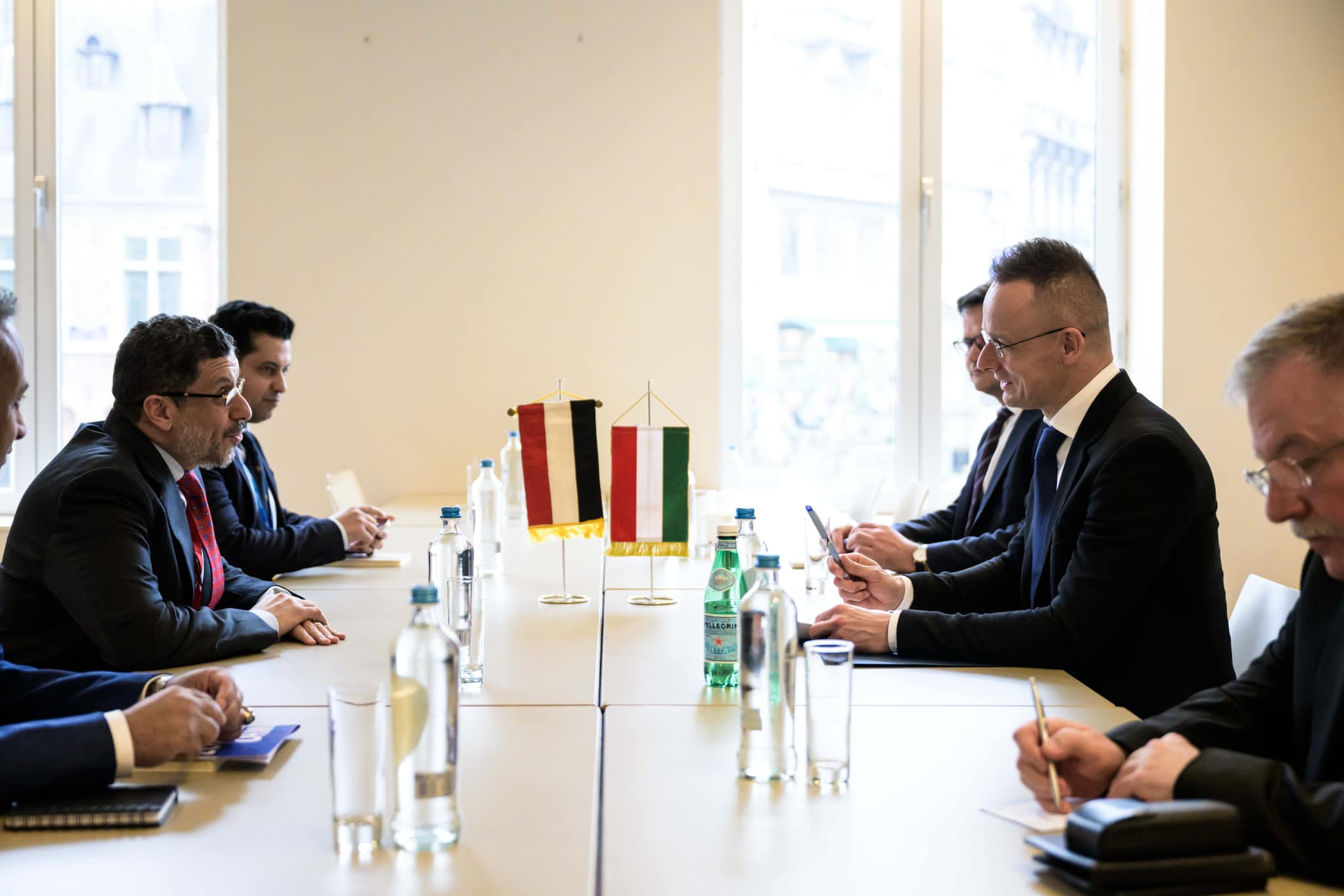
According to the ministry's announcement, at the press conference following the EU-India-Pacific ministerial meeting, the head of the ministry emphasized that in recent years a completely new reality has emerged in the world order, a new era has begun following the crises, in which the centre of gravity of the world economy has shifted from west to the east.
He underlined, that this is also shown by the fact that, while previously 70-80 percent of global investments were financed by Western capital, and the remaining 20-30 percent by Eastern capital, this ratio has now reversed.
He also touched upon the fact that Eastern and Western companies are now more dependent on each other than ever before.
"Of course, some describe this as a negative phenomenon. I think it's a good, it's a positive phenomenon," he said.
"It is very important that in this new period, in this new era, Europe finds the right answer, because if it gives the wrong answer to this new reality, it can cause itself much more serious economic problems than the current one," he added.
He emphasized that currently the realist and ideological approaches are fighting each other, and the supporters of the latter are working on the separation of Eastern and Western economies, which, however, according to him, would be completely against European interests.
“This approach struggles with reality, it wants to confront reality. But there is also a realistic approach that stands with two feet on the ground, takes reality as a basis and says that there is a need for closer East-West economic cooperation than ever before" - he stressed.
According to Péter Szijjártó, Europe is in a great need of Eastern investments today, as well as trade to the East, especially that without Asian suppliers, the electric transition in the automotive industry, which is a key sector, would not be possible.
"If Europe barricades itself from Eastern investments and puts obstacles in the way of Eastern trade, then the European Union will lose even more of its economic weight," he warned, recalling that China has now overtaken the continent in the ranking of gross domestic product (GDP).
He confirmed that his government wants to take steps in the direction of connectivity during the Hungarian EU Presidency later this year, therefore they want to speed up the free trade negotiations with the Southeast Asian states, Indonesia, Malaysia, Thailand and the Philippines.
"While we, here in Europe, were busy with our own nuisances and our own outdated, ideological debates, the world’s largest free trade area was created in the Southeast Asian region," he declared.
He recalled that the countries of the Regional Comprehensive Economic Partnership (RCEP) account for about 29 percent of the global GDP. "Therefore, it would be in the EU’s interest to develop the closest possible cooperation with this free trade zone," he said.
The minister believes that inappropriate matters should not be mixed with economic cooperation, i.e. if the EU wants to conclude these free trade agreements "with the intention of political and ideological education", then the partners will obviously not agree to them.
The minister praised the success of the Eastern Opening policy, pointing out that if the government had yielded to the "exercise of pressure and attempts at dissuasion", then his country would have missed out on a huge opportunity for growth, as in recent years most investments in Hungary have come from China and South Korea respectively. .
He stressed that in the past ten years, the trade turnover between Hungary and the Southeast Asian countries has increased by about 75 percent, and the investments coming from the region help the domestic economy change its dimensions and guarantee the maintenance of the growth path.
“Hungary is proof that very serious benefits can indeed be gained from East-West cooperation," he concluded.
Source:MTI-Hungarian News Agency
Agriculture and Fisheries Council focused on concrete and rapid solutions
Ministers discussed the need for rapid and structural responses to the current crisis situation in the agricultural sector during their meeting in Brussels on 26th February.
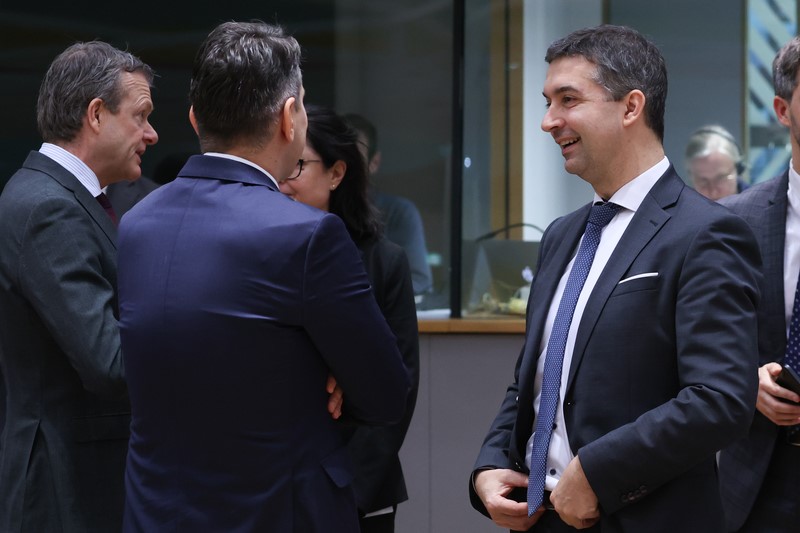
Following the farmers' protests across the EU, the European Commission and the Council are working together to find solutions to farmers' concerns. Agriculture Commissioner Janusz Wojciechowski considered the problems complex, which vary from one Member State to another. As common concerns the Commissioner named the EU trade and climate policies, thus an unequal level of playing field with third countries, administrative burdens created by EU and national legislations and increasing green requirement. Ministers unanimously agreed on the need for a rapid and effective response to farmers' concerns. State Secretary Zsolt Feldman presented a number of concrete proposals to reduce administrative burdens, strict rules and controls. Zsolt Feldman stressed the importance to develop medium- and long-term solutions besides the immediate adoption of short-term measures.
Ministers, furthermore, had an exchange of views on tools combatting transboundary animal diseases, including vaccinations, and fishery issues
Ambitious employment and social agenda is needed for the new institutional cycle – meeting of the employment and social ministers
At the Employment, Social Affairs, Health and Consumer Affairs (EPSCO) Council on 11 March 2024, the Hungarian delegation was led by Attila Fülöp, Minister of State for Care Policy.
The Council held a policy debate on the future social agenda. During the debate, ministers discussed how the EU can best contribute to addressing the short-term risks of upward social convergence in the field of employment and social policy, which are the main priorities of the future strategic agenda, and what the benefits of enhanced cooperation with finance ministers could be for Social Affairs and Employment Ministers. Attila Fülöp, State Secretary of Hungary, said that Hungary agrees with the messages of the Social Pillar and is committed to its principles, but most of them are within the competence of the Member States and this competence should be fully respected. Among the future challenges, he highlighted demographic and structural changes, digitalisation, as well as labour and skills shortages. Among the priorities, he mentioned activating the labour reserve, fighting poverty, reducing territorial disparities, promoting the integration of persons with disabilities, improving access to quality services and child protection.
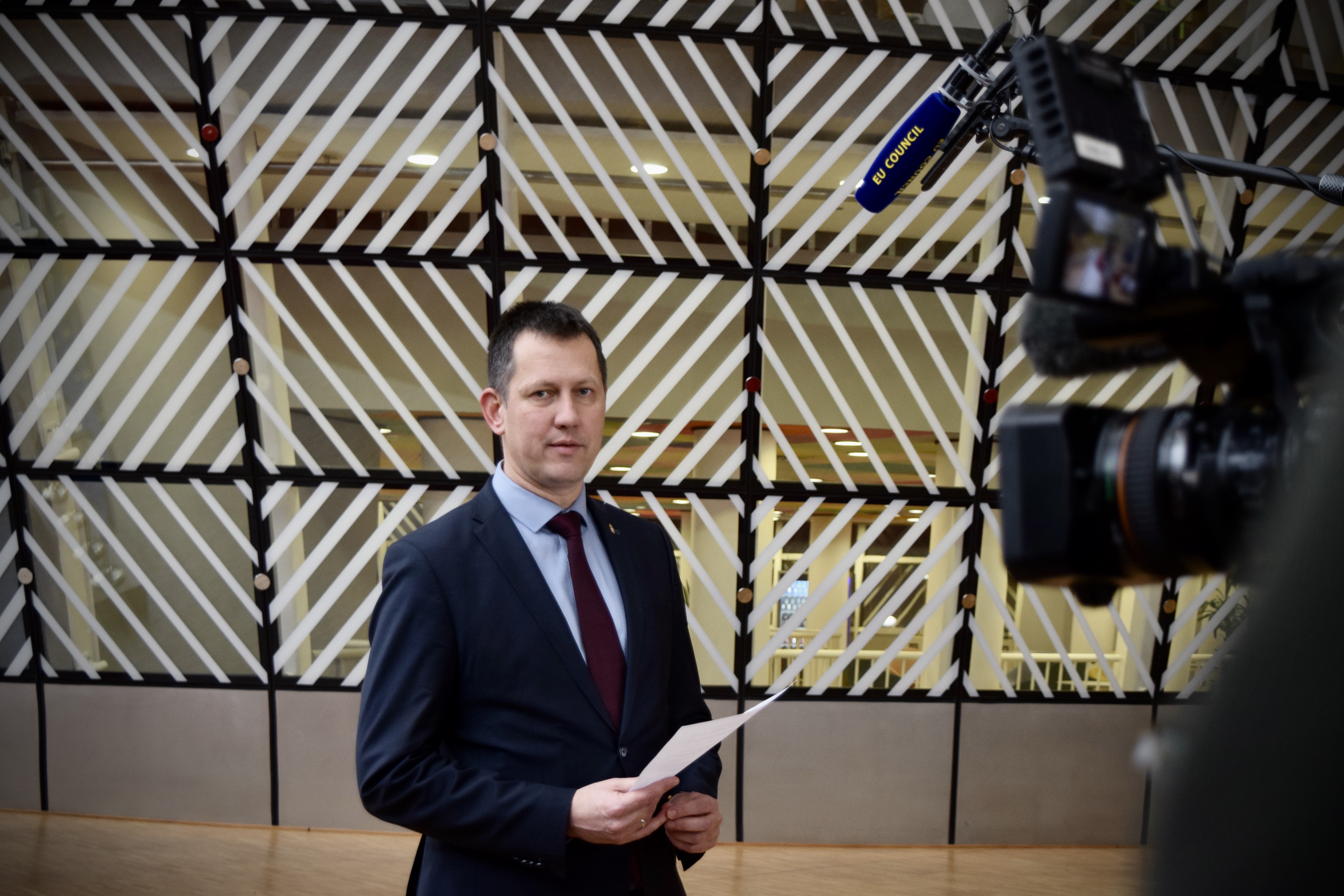
Under the legislative dossiers, ministers approved the preliminary political agreement reached between the Council and the European Parliament on the platform workers directive. The Hungarian Government welcomes legislation, as we believe that the compromise reached will ensure adequate protection and greater welfare of platform workers while respecting national competences.
In preparation for the upcoming Hungarian Presidency of the Council of the European Union, Attila Fülöp held bilateral talks with Johannes Rauch, Austrian Minister of Social Affairs, Health, Care and Consumer Protection, Agnieszka Dziemianowicz-Bąk, Polish Minister of Family, Labour and Social Affairs, Karien van Gennip, Dutch Minister of Social Affairs and Employment, Marina Elvira Calderone, Italian Minister for Labour and Social Policy. These bilaterals provided an opportunity to outline the plans of the Hungarian Presidency and to identify fields of cooperation in relation to the thematic priorities.
The Council adopted simplification package to help farmers
The Council adopted simplification measures for the Common Agricultural Policy and agricultural ministers discussed the agri-market situation during their meeting in Brussels on 26th March.
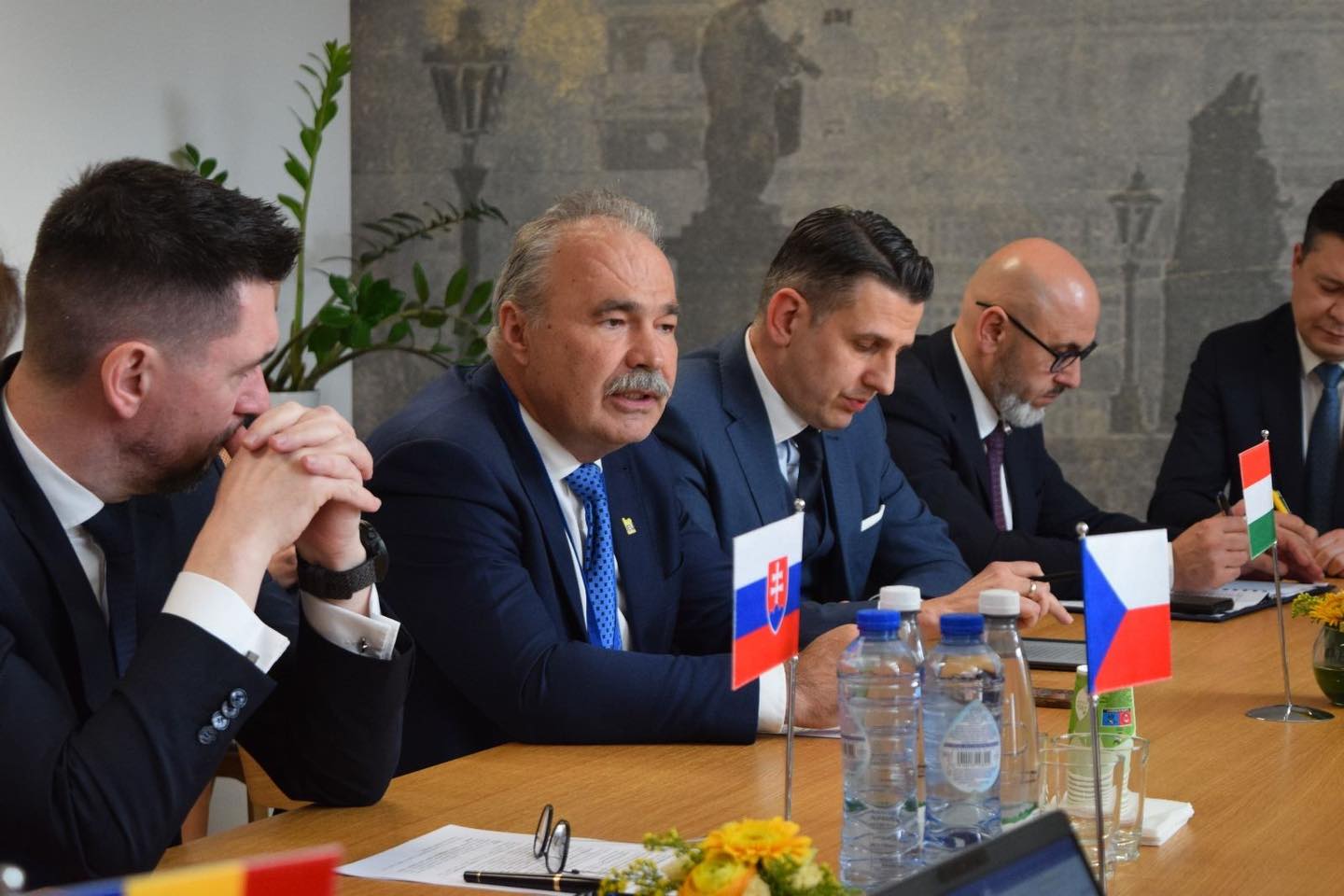
Following the farmers' protests across the EU, Agriculture Commissioner Janusz Wojciechowski recalled that on 15 March the Commission published its simplification package proposal in response to farmers' concerns. Ministers confirmed the need for a rapid and effective response. Minister István Nagy stressed the importance to develop medium- and long-term solutions besides the adopted of short-term measures.
As regards the agricultural market situation, EU agriculture ministers mentioned in particular the EU-Ukraine trade relation. The European Commission stressed the prolongation of Autonomous Trade Measures (ATM regulation) with Ukraine, in order to support their economy. However, Member States much further from the Ukrainian border, reported negative effects due to the flow of Ukrainian agricultural goods. Minister István Nagy highlighted that those products should return to their traditional export markets and reach the third countries in need. The Minister stressed such a solution, which takes into consideration the interest of farmers both in the EU Member States and in Ukraine.
Ministers, furthermore, had an exchange of views on the upcoming election of the Director General of the World Organisation for Animal Health, on the Call to Care for Animal Welfare ministerial cconference held in January as well as on the Commission’s animal welfare packageand fishery issues.
Aid provided to Ukraine must be monitored
Hungary finds the disciplined, strict control and monitoring of the use of the aid disbursed to Ukraine important, the Hungarian Finance Minister said in Luxembourg on Friday.
Speaking to Hungarian journalists after a Council meeting composed of finance ministers (Ecofin) from the EU Member States, Mihály Varga stated that the European Commission must strive to ensure that the €50 billion in funds allocated to support Ukraine's reconstruction and reforms are used in a disciplined manner, that the money is received and that it is used only for the purposes for which the EU has provided it.
There can be no double standards in relation to this issue; these funds must be monitored and controlled. The funds allocated to Ukraine must be managed with the same discipline as all other EU funds – he said. Furthermore, the minister mentioned that Member States welcomed the fact that the European Investment Bank (EIB) had included the financing of security and defence projects among its priorities. In relation to this, he stressed that Hungary favours peaceful solutions, but notes that the situation is currently moving towards escalation rather than peace.
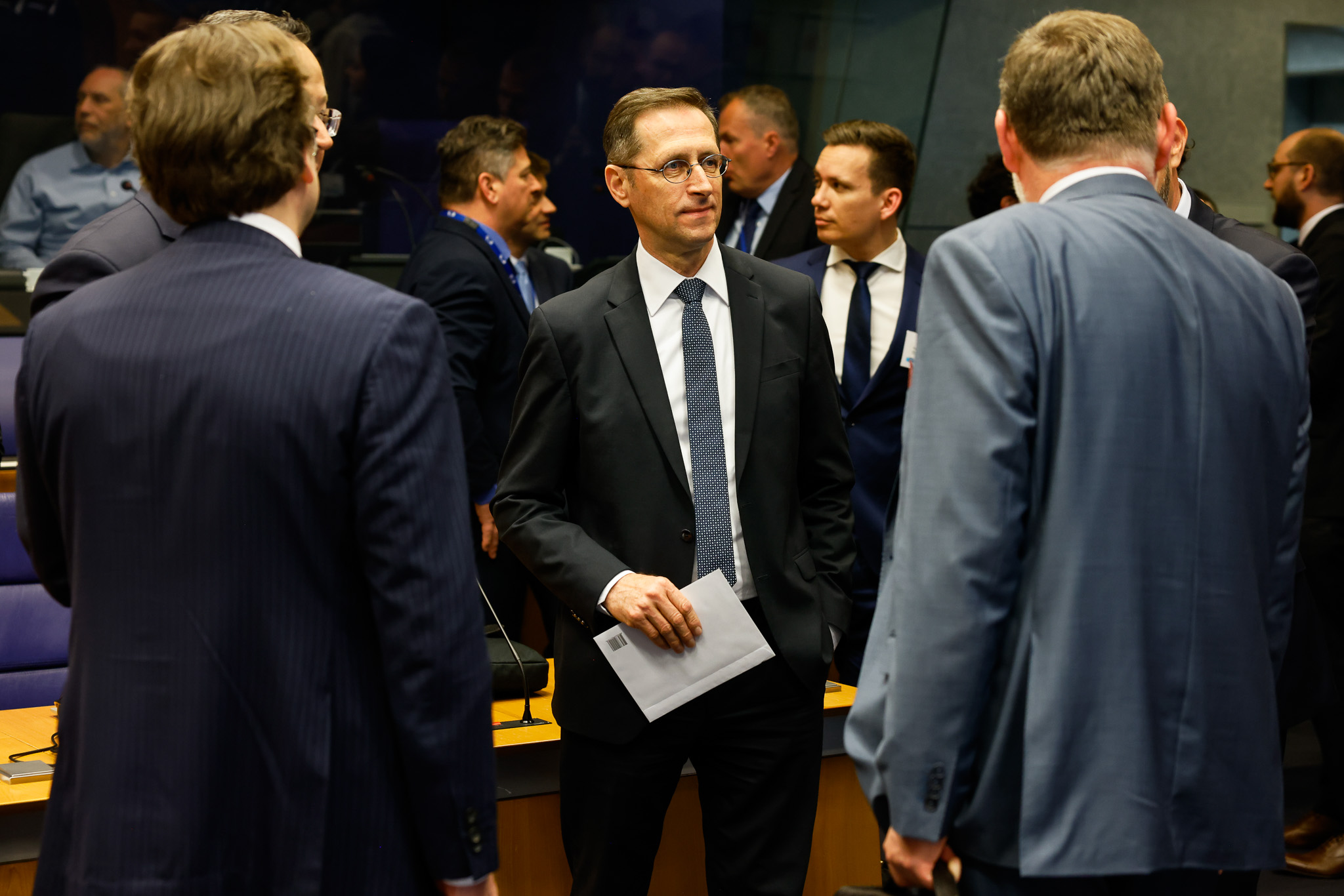
He stressed that Hungary needs to be able to develop its defence industry. While he also stated that he wants to increase the existing gross expenditure of two percent of GDP. "Hungary's position is that the participation of the European Investment Bank should not become a tool for the supply of arms to Ukraine, but should contribute to strengthening Europe's defence capabilities," the Finance Minister said, adding that efforts should be made to ensure that the financial support provided serves a good purpose. Hungary still does not support supplying arms, he said. Mihály Varga declared that Europe's security must be strengthened. In this context, he recalled that Hungary has been protecting the Schengen borders on its own for years, without external funding, which has so far amounted to an expenditure of approximately HUF 700 billion. Hungary is waiting for EU funding that will ensure the reinforcement and further protection of the border. In relation to the EU migration and asylum package adopted by the European Parliament the previous day, he said the pact could be used for blackmail, "obviously that is its aim".
The migration pact is unacceptable for Hungary, he continued. "Even under pressure from the European Parliament, we will not accept that others should decide with whom we can live,”. According to Mihály Varga, it is unacceptable that the package also included a 20,000 euro penalty for non-compliance. The purpose of this is to be able to blackmail member states financially, he said. All possible means must be used to ensure that the pact is reviewed and rejected, the Finance Minister added in his statement.
Source: MTI - Hungarian News Agency
Attila Fülöp: The employment rate of people with reduced working capacity is almost 50 percent in Hungary
Hungary was one of the worst performing countries in the EU in terms of employment of people with reduced working capacity in 2010, but the 18 percent employment rate has now risen to almost 50 percent, the State Secretary of the Ministry of the Interior responsible for care policy told MTI in Brussels on Monday.
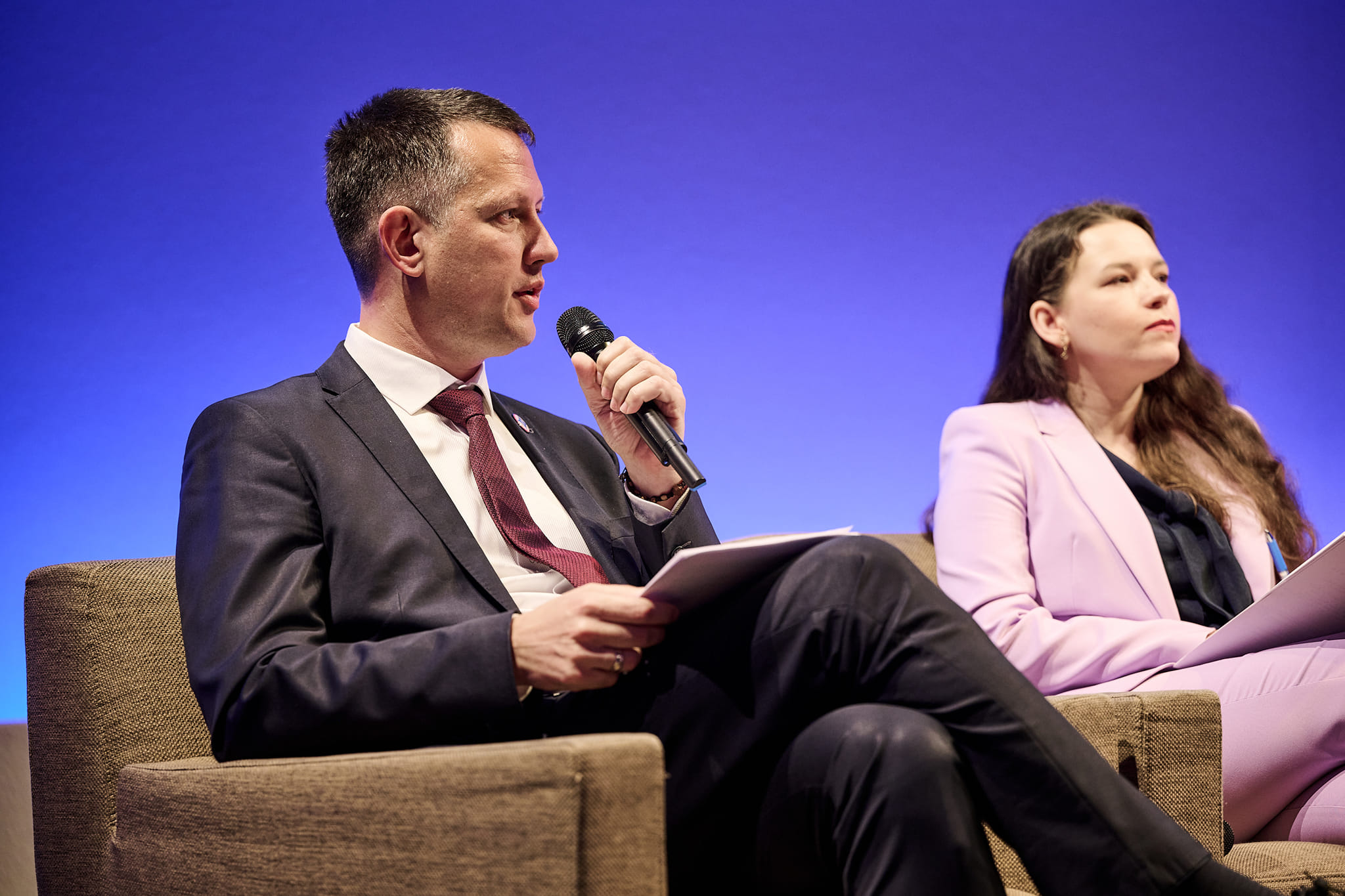
Attila Fülöp attended a conference on reasonable accommodation for the social inclusion of people with disabilities at the European Parliament in the Belgian capital, where he also had discussions with representatives of civil society organisations.
The Hungarian State Secretary stressed that the Hungarian state is committed to supporting people with disabilities by providing accessibility and extending employment as widely as possible.
He stressed that the employment of people with disabilities and long-term illnesses is a social, solidarity and economic issue as well. In Hungary today, 150,000 people with a reduced work capacity have a job and support themselves and their families not from benefits but from earnings, he added. He also said it was positive that around three quarters of the people in employment were working in the open labour market.
Today, 4.7 million people are working in Hungary, an increase of 30 percent since 2010, or about one million, but the increase in the number of people with a reduced work capacity was 150 percent, so the most disadvantaged people were the ones who were able to participate in employment, he said.
In a press release sent to MTI, Fidesz MEP Ádám Kósa, who hosted the conference, stressed that "the future lies in personalised solutions and assistive technologies that can help overcome the disabilities that arise from ageing."
László Lovászy, UN human rights expert, Senior Research Fellow at the National University of Public Service and Senior Advisor to the Minister of Social Affairs, pointed out that "the incredible development of biotechnology and the rapid spread of artificial intelligence may bring opportunities, challenges and risks for people with disabilities in the world of work that we could not have imagined before, and may require a complete review of the European position in the future."
Representatives of the European Commission, the European Disability Forum (EDF), the European Independent Living Association (ENIL), and the European Association of Disability Service Providers (EASPD) agreed that the working conditions of people with disabilities in the EU are changing only slowly. They pointed out that reasonable accommodation involves not only material but also organisational measures, such as changing the speed or rhythm of work.
Source: MTI-Hungarian News Agency
The April Agriculture and Fisheries Council focused on structural responses and agri-trade issues
Ministers discussed the rapid and structural responses to the current crisis situation in the agricultural sector and agri-trade related issues during their meeting in Luxembourg on 29th April.
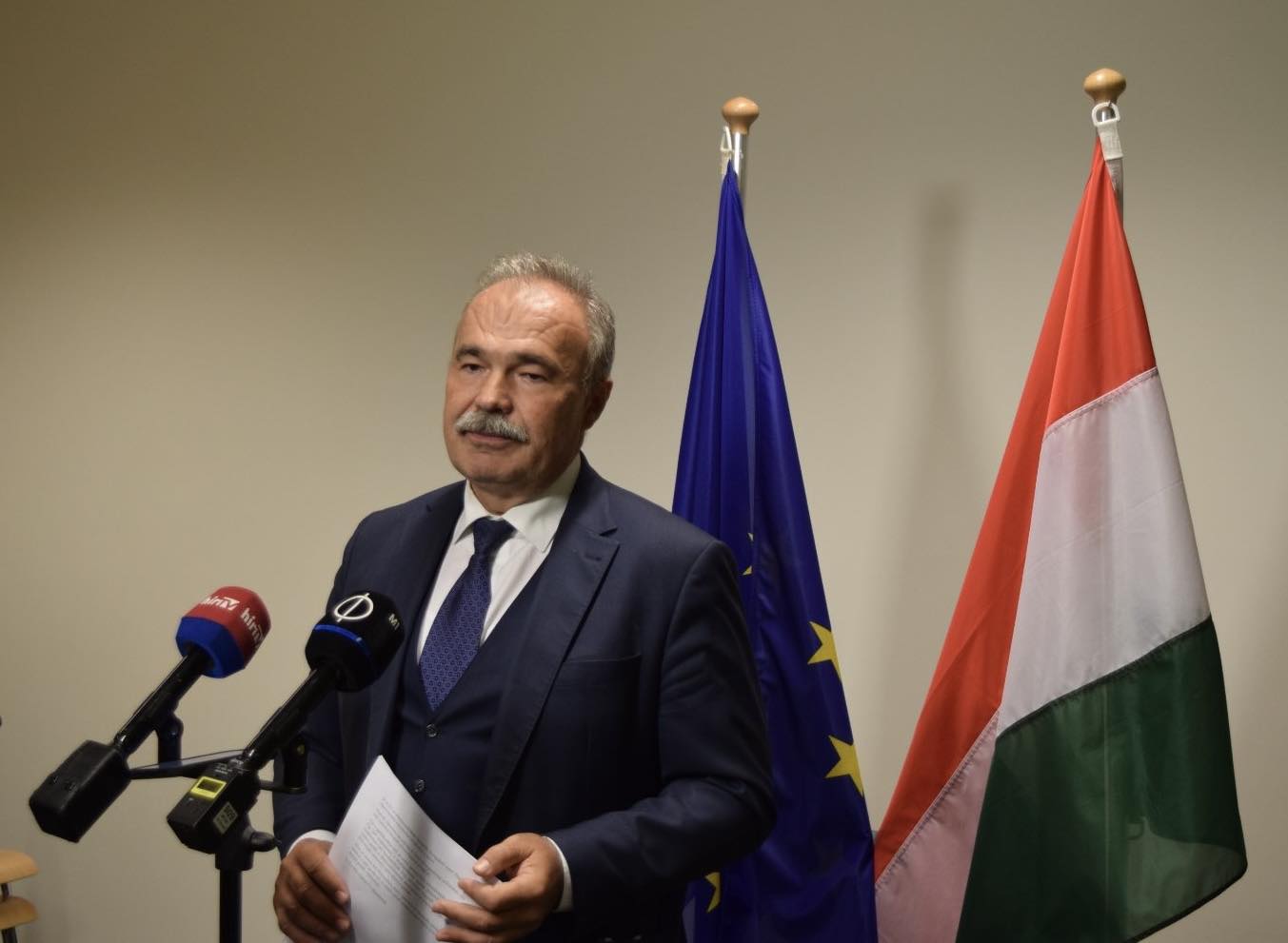
Agriculture Commissioner, Janusz Wojciechowski said that the European Parliament has voted in favour on CAP simplification package, therefore it could enter into force in May. The Commissioner recalled the 18 April European Council Conclusions, which stated that farmers need a stable and predictable framework and called the Commission for further simplification proposals. Minister István Nagy stressed the importance to develop medium- and long-term solutions besides the adopted short-term simplification measures.
As regards the agricultural market situation, ministers generally agreed that FTAs are an important tool for economic growth, but sensitive sectors must always be taken into account. On the EU-Ukraine trade relation, István Nagy called for a more balanced approach, which takes into consideration the interest of farmers both in the EU Member States and in Ukraine.
Ministers, furthermore, had an exchange of views on the bioeconomy, which must stand out at the core of the next European Commission’s work programme.
Agriculture and Fisheries Council focused on crisis management, agri-markets and animal welfare
Ministers discussed among the need for rapid and structural responses to the current crisis situation in the agricultural sector, the current situation of agri-markets and animal welfare related issues during their meeting in Brussels on 27th May.
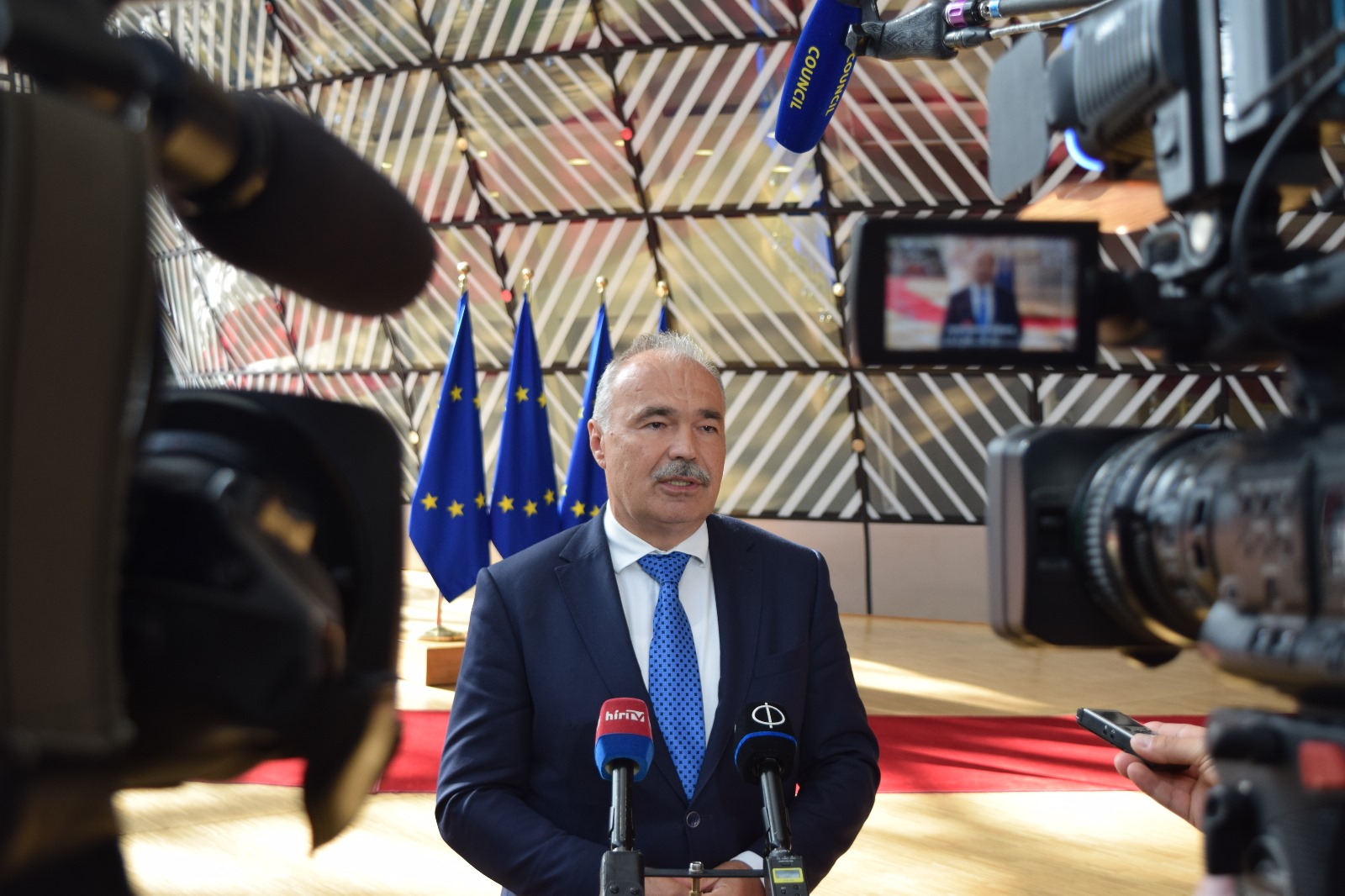
Misters stressed the importance of effective crisis management and adequate financial support, in particular strengthening of the CAP budget. Minister István Nagy also told that a comprehensive and complex examination of the risk management tools and crisis measures was necessary. He added, that Member States should have more flexibility in implementing risk management and crisis measures.
As regards the agricultural market situation, EU agriculture ministers highlighted in particular the problems caused by extreme weather events. Regarding the EU-Ukraine trade relation, the Commission told that Autonomous Trade Measures (ATM regulation) with Ukraine was prolonged, in order to support their economy. Minister István Nagy highlighted that those products should return to their traditional export markets and reach the third countries in need. The Minister stressed such a long term solution, which takes into consideration the interest of farmers both in the EU Member States and in Ukraine.
Ministers, furthermore, had an exchange of views on animal welfare.
Presentation of the priorities of the Hungarian Presidency at the EPSCO Council
At the Employment, Social Affairs, Health, and Consumer Affairs (EPSCO) Council meeting on 20 June 2024, the Hungarian delegation was led by Sándor Czomba, Minister of State for Employment Policy, and Attila Fülöp, Minister of State for Care Policy.
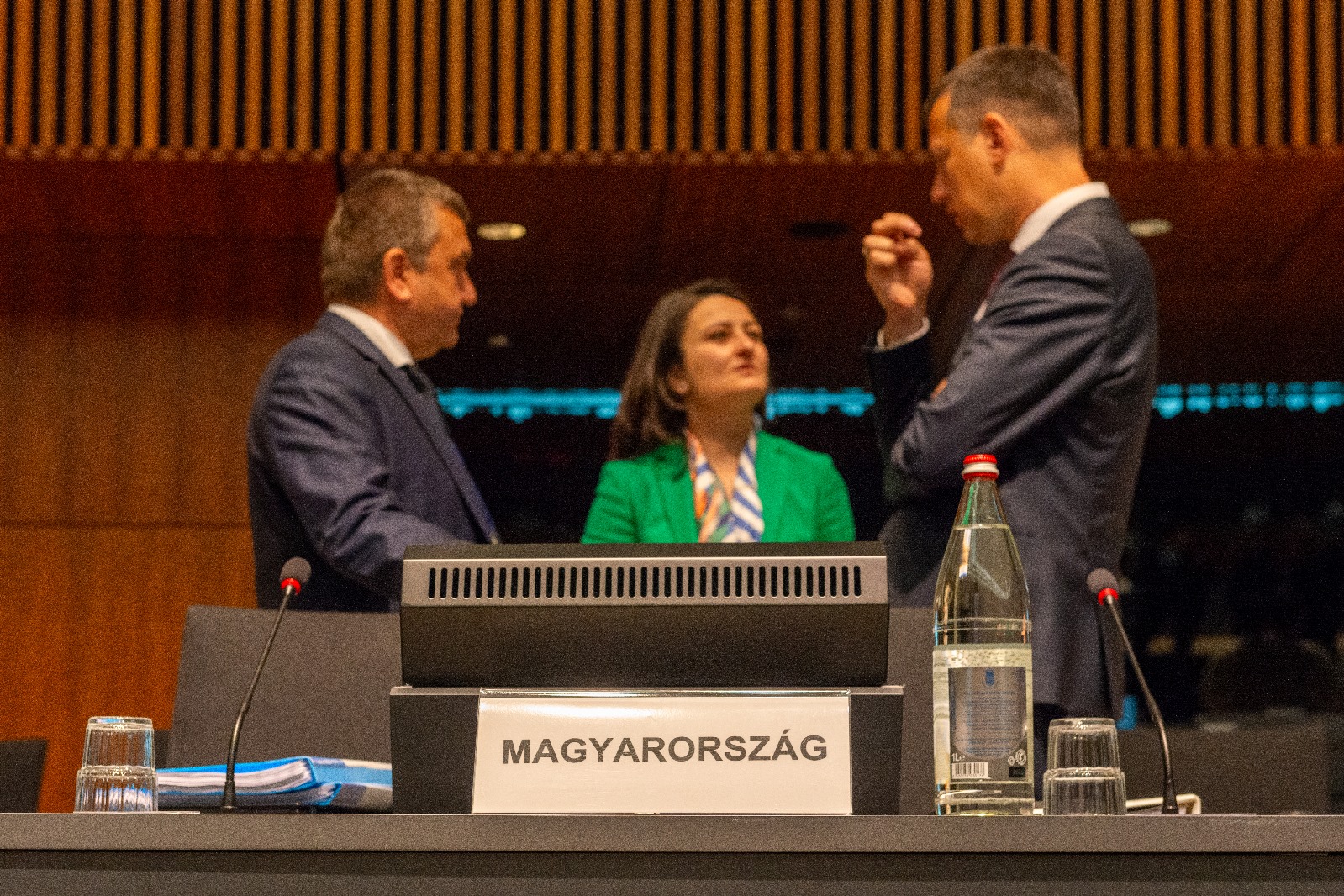
Regarding employment policy, State Secretary Sándor Czomba said that the focus of our Presidency programme is defined by the challenges arising from the ageing of the population and the lack of skilled labour. In the next six months, we intend to focus EU discussions on access to work for job seekers and the activation of the inactive working-age population, and we will also raise these issues in the framework of Council conclusions. Additionally, the Hungarian Presidency will continue discussions on the Works Councils Directive, the draft directive, and recommendations on traineeship, and will initiate talks on the forthcoming proposals package on occupational safety once it is published.
Attila Fülöp stated that two thematic priorities have been identified in the social field, which will be followed by the adoption of Council conclusions. One of the themes aims to promote the social participation and inclusion of persons with disabilities. In this context, particular attention will be paid to its key element, employment, and related aspects, such as reasonable accommodation and rehabilitation. Another priority is improving access to quality social services and reducing regional disparities to enhance social inclusion.
In the area of gender equality and equal treatment, we want to work to support women and men in finding a work-life balance. We also consider it important to promote women's mental health using a lifecycle approach, as highlighted by Attila Fülöp.
At the Council, ministers held a policy debate on the social dimension of the internal market. Ministers gave their assessments of the Letta report's proposals on employment, skills, social policies and governance. On behalf of Hungary, State Secretary Sándor Czomba underlined, among other things, that the ageing European population, the sustainability of social care systems, and labour shortages are pressing pan-European problems that require immediate and effective action. Addressing labour shortages is particularly crucial, and there is a great need to attract and activate labour reserves.
The Commission presented the European Semester spring package. Vice-President Dombrovskis and Commissioner Schmit highlighted that this semester cycle focuses on increasing the efficiency and competitiveness of our economies. This is a special year because the package is the bedrock of the new economic governance framework, and for the first time, we have analysed social convergence based on the revised Social Scoreboard and the features of a Social Convergence Framework. Furthermore, the Commission has also proposed a revision of the Employment Guidelines this year.
The Council adopted a general approach to a draft directive on European works councils. Ministers took note of a progress report on the draft directive and a recommendation on professional practices. EPSCO approved a progress report on the draft directive on equal treatment.
Information about our website
Please note that the website of the Hungarian Presidency of the Council of the EU is available from 18 June 2024.
From that date, and until the end of the Presidency, all news will be published on the Presidency’s website.
Contact details and all other information about the Permanent Representation will remain available on the Permanent Representation website.
The Presidency website can be accessed via this link: https://hungarian-presidency.consilium.europa.eu/en/
Hungary took over the Council Presidency from Belgium at the June Agriculture and Fisheries Council
Ministers adopted presidency conclusions on the future of EU agriculture during their meeting in Luxembourg on 24th June. At the end of the meeting Belgian Agriculture Minister David Clarinval handed over the Presidency to Agriculture Minister István Nagy.
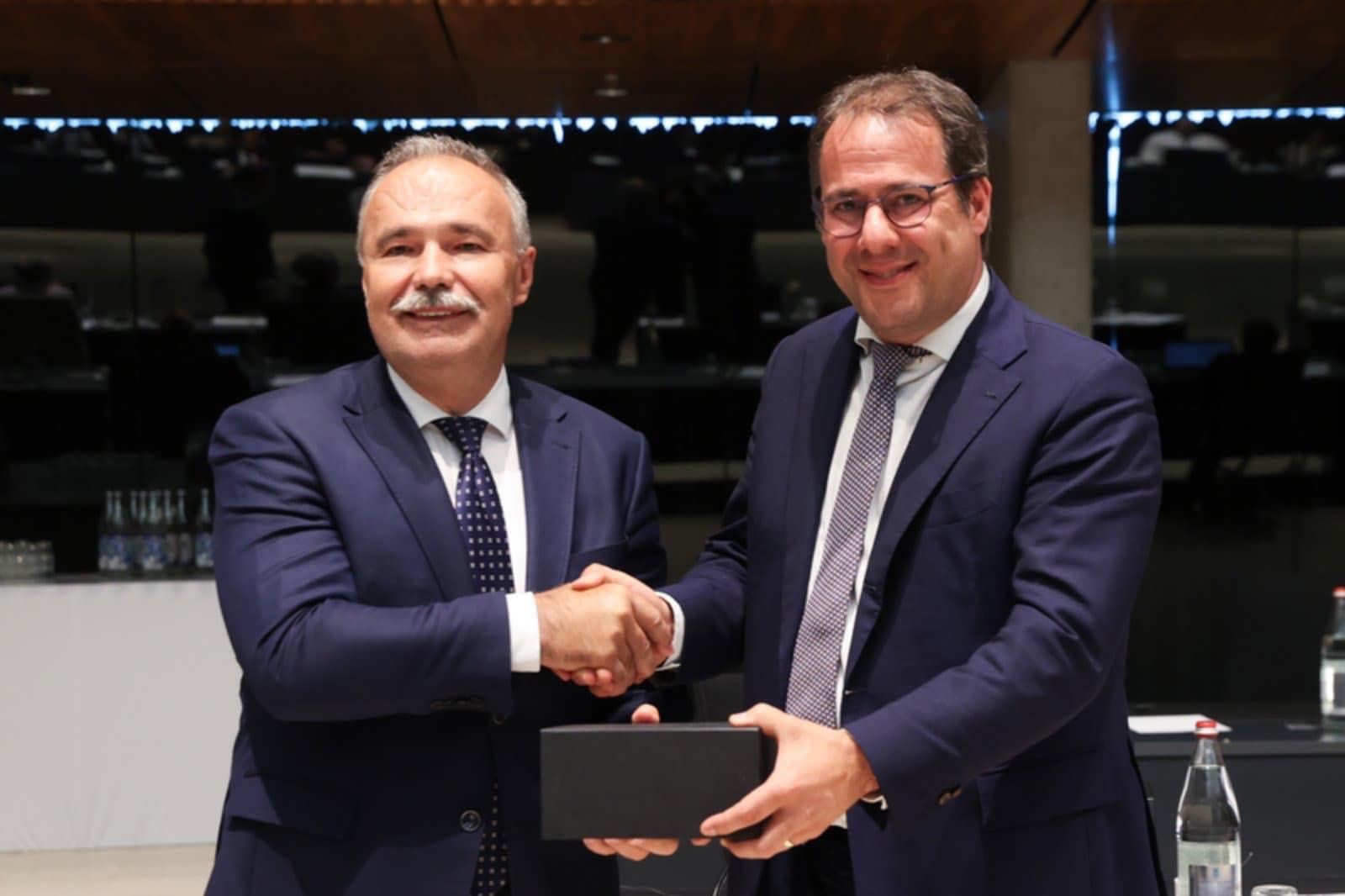
Ministers adopted presidency conclusions -with the support of 26 Member States, including Hungary - on the future of EU agriculture. István Nagy stressed that the adoption of the conclusions will help to ensure the importance of agriculture in the EU's strategic agenda and will also provide guidance to the new Commission, how agriculture should relate to other sectors in the coming period.
At the end of the Council, the Belgian Minister for Agriculture, David Clarinval, handed over the Presidency to the Hungarian Minister for Agriculture. István Nagy thanked and acknowledged the efforts of the Spanish and Belgian presidencies and assured that Hungary will do its utmost to ensure successful continuation of the trio presidency working programme.
Cultural heritage protection–our new conference booklet now available online
As of today, the booklet on our conference on cultural heritage protection is now available on our website.
With over 200 participants, the event took place in the framework of Hungary's EU Presidency in September 2024.
The 56-page publication, available online from today, presents the speeches and panel discussions of the day-long conference, as well as the two exhibitions presented on the margins of the event.
You can access the booklet by clicking here.
The EU’s finance ministers meet in Brussels
On 18 February, the Member States’ ministers for economy and finance met in Brussels, where Hungary was represented for the first time by Márton Nagy, Minister for National Economy.
Before the meeting, the minister stressed to journalists the importance of examining whether the global minimum tax, in its current form, would remain viable in preserving or strengthening the competitiveness of the EU. "We have to avoid that big multinational companies leave the European Union and move, for example, to the United States or other countries," he added.
Other issues on the agenda included the economic governance framework, the European Semester 2025 and EU competitiveness.
Hungarian President to head the European Committee of the Regions
On 20 February, Kata Tüttő was elected President of the European Committee of the Regions.
Following the vote, Tibor Navracsics, Minister of Public Administration and Regional Development, said: With the election of Kata Tüttő as the head of the European Committee of the Regions for the next five-year period, Hungary is represented at the head of an important EU institution, which is a very important opportunity for national interest representation, consensus building and influencing European domestic policy.
